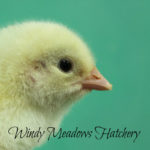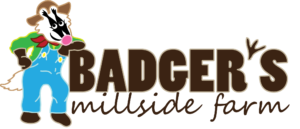Pastured Poultry Training: Evaluating Breeds for Pastured Poultry and Understanding Genetics, Performance, and Cost (PPT105)
Release Date: 05/05/2020
 Highly Pathogenic Avian Influenza and Pastured Poultry Flocks
Highly Pathogenic Avian Influenza and Pastured Poultry Flocks
Pastured Poultry Talk
I have a conversation with Chrislyn Wood, DVM, about the threat of Highly Pathogenic Avian Influenza (HPAI) and pasture raised flocks. Dr. Wood is a veterinarian with USDA APHIS and she is involved first hand with HPAI monitoring and response efforts. We cover a lot of ground, including historical observations, risk assessment, disease identification, and prevention.
info_outline The Days of Wholesale Pastured Chickens are Over for Greg Gunthorp
The Days of Wholesale Pastured Chickens are Over for Greg Gunthorp
Pastured Poultry Talk
Greg Gunthorp joins the show to talk about his decision to step away from pasture raised chickens. Covid plays into the story, of course, but the challenges started long before this virus came to be front page news.
info_outline Turning a 20 year chicken hobby into a farm with Cynthia Capers
Turning a 20 year chicken hobby into a farm with Cynthia Capers
Pastured Poultry Talk
Cynthia Capers, Heniscity Farm in Tennessee, shares her 20+ year journey from hobby chicken keeper to farm. Twenty years ago, the sight of six Black Australorps brought tears to her eyes. Today, she's serving her community through egg sales, chick sales, and pullet sales.
info_outline PPT114 - Small Layer Flock Profitability
PPT114 - Small Layer Flock Profitability
Pastured Poultry Talk
I answer a listener question, "How can I make my small laying hen flock more profitable?" With feedback from the community, insights from The Fighting Farmer, and personal experience, we dive deep into ways to prosper from your small flock of laying hens.
info_outline Perdue Acquires Pasturebird
Perdue Acquires Pasturebird
Pastured Poultry Talk
Perdue acquires Pasturebird and becomes the biggest producer in the space. I unpack what it means on this episode and walk through some history.
info_outline Maintain Production with All In/All Out Rotation for 5,000 laying hens
Maintain Production with All In/All Out Rotation for 5,000 laying hens
Pastured Poultry Talk
Listener Chris asks how to utilize an all-in/all-out pullet replacement strategy without duplicating infrastructure while maintaining egg production. To help answer the question, I share insights from Mark Harrison and Dave and Ginger Shields.
info_outline Community Q&A Plus a Monologue on Heritage Poultry's Role in Pastured (PPT109)
Community Q&A Plus a Monologue on Heritage Poultry's Role in Pastured (PPT109)
Pastured Poultry Talk
I close out the pastured poultry training series with a live streamed Q&A between Terrell Spencer from The Fighting Farmer and myself. We went live on Facebook and fielded questions from our listeners, and this episode of the podcast includes an edited version of that conversation. If you want to watch a replay of the stream, find it on . Before we work into the questions, I offer some thoughts on heritage poultry's potential role in pastured community. APPPA has recently started to focus on breeding specific topics and offers monthly livestreams on breeding. Check out . We cover a...
info_outline Feed Management Tips to Reduce Waste & Maintain Egg Production
Feed Management Tips to Reduce Waste & Maintain Egg Production
Pastured Poultry Talk
In Pastured Poultry Talk episode 110, farmer Matt Steinman discussed how he used fermented feed as a solution to waste and fines. While fermentation can be a viable solution for some people, it's not the only way to deal with fines. This episode unpacks those options.
info_outline Is Fermented Feed Worth the Time for 1,000 hens?
Is Fermented Feed Worth the Time for 1,000 hens?
Pastured Poultry Talk
Farmer Matt Steinman (Foothills Farm in Sedro-Woolley, Washington) and Dr. Louisa Brouwer (technical advisor on the trial) share the results of a SARE-funded trial that sought to understand the economic impacts of feeding fermented feed to laying hens. The trial compared a dry feed, wet feed, and a fermented feed and then determined the net difference across to the bottom line.
info_outline Community Q&A PIus a Heritage Poultry Monologue
Community Q&A PIus a Heritage Poultry Monologue
Pastured Poultry Talk
I close out the pastured poultry training series with a live streamed Q&A between Terrell Spencer from The Fighting Farmer and myself. We went live on Facebook and fielded questions from our listeners, and this episode of the podcast includes an edited version of that conversation
info_outlineThis episode has a downloadable worksheet to help you apply the concepts discussed in the podcast episode to your situation. Get it by email here.
I assume that when it comes to choosing a breed of chicken for your pastured poultry flock, you will have a favorite breed. As you research birds, you'll make a list of potential options that would appear to be great birds. Finding information about chickens on the internet is easy; however, my goal is to give you a way to judge the economic impact on your pastured poultry business, not as a way to recommend one choice over another, but as way to set expectations and and calibrate your choice of chicken to your actual goals.
Evaluating the Genetic Potential of Breeds
Every single meat bird or laying hen you raise has a potential. As a manager, you either bring out that potential or you suppress it. We'll talk about how you can bring out the genetic potential of your flock in the following episodes. For now, know what the genetic potential of your chicken choices are. Every breeder has this information for meat birds and for layers, and if you're buying heritage breeds from someone, think twice about buying chickens from a breeder who cannot articulate important concepts such as feed conversion, carcass size, growout time, and lay rate.
But don't rely on the book knowledge. At some point you need to do the work. You need to measure your actual results, compare it against the potential, and then use that information to make decisions about management, pricing, markets, etc.
Choosing a Meat Bird for Your Pastured Poultry Flock
Nobody can tell you what the perfect meat bird is for your flock. Instead you're going to need to research a breed, match up the breed to your business goals, raise the birds, and then evaluate your results.
In the podcast episode, we dig deep into the genetic potential of several popular meat birds and extrapolate that information to get a price per pound for labor and feed.
- How much more does it cost you in feed to raise a Freedom Ranger compared to a Cornish Cross?
- How about the Robust White?
- How does the feed and labor of the Freedom Ranger compare the labor of the Delaware?
I cover all those questions and more in the episode, and in the accompanying worksheet. The worksheet provides a reference for all the values and explains the calculations.
Things to know when choosing and evaluating meat chickens.
- Expected growout time
- Expected carcass weight
- Feed Conversion Ratio
Choosing a Layer Breed for Your Pastured Poultry Flock
The layer specific analysis picks up at 42 minute.
On the podcast episode, I run through similar comparisons as the meat bird and try to really hone in on the labor and feed cost of a dozen eggs. For layers, the golden metric is lay rate, which is a calculation of how many eggs a hen lays over a period of time. For example, ten hens with an 80% lay rate will produce eight eggs per day.
Things to know when evaluating layers:
- Expected age of lay
- Expected lay rate
- The amount of feed to make one dozen eggs
- The plan for dealing with the boys
In this episode:
- All breeds have genetic potential
- I'm not a cornish cross fan boy, but if you mame your birds you're at fault
- It's hard to change the birds. It's much easier to change how you manage them
- Compare production data for Cornish Cross, Freedom Ranger, SASSO, Robust White, and Delaware
- Evaluate cost per pound in terms of feed and labor
- Things to know when buying meat birds
- Compare production data for Layers (red sexlinks and heritage) (timestamp 42:02)
- The male problem
- How lay rate affects margin
- The "economy of scale" of chickens
- Listener question about managing a hybrid from two heritage birds
I created an editable PDF worksheet to help you work through the concepts in this episode. Get it by email.
 This episode of Pastured Poultry Talk sponsored by Windy Meadows Hatchery. Windy Meadows Hatchery supplies day old broiler chicks from their family run hatchery.
This episode of Pastured Poultry Talk sponsored by Windy Meadows Hatchery. Windy Meadows Hatchery supplies day old broiler chicks from their family run hatchery.
If you're looking for a supplier for your chicks, talk to the people who are directly responsible for hatching and shipping your birds. Tell them you heard about them from Pastured Poultry Talk. Contact Windy Meadows Hatchery.
 If you’re looking for fences that work from the people who use them everyday, contact Premier at 800-282-6631 or visit their website to request an informational catalog.
If you’re looking for fences that work from the people who use them everyday, contact Premier at 800-282-6631 or visit their website to request an informational catalog.
 Badger's Millside Farm is a distributor of Ready-to-Lay Pullets. Ask about full beak, non-gmo, certified organic, soy free, and more. Learn more.
Badger's Millside Farm is a distributor of Ready-to-Lay Pullets. Ask about full beak, non-gmo, certified organic, soy free, and more. Learn more.
